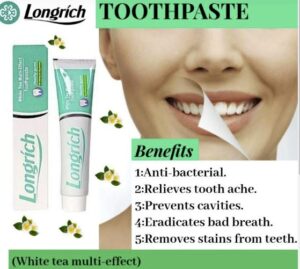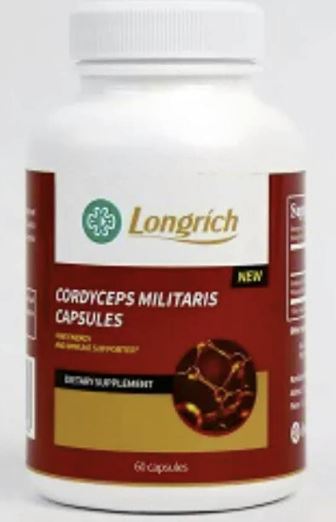Fluoride Toothpaste – Hero or Villain
Is using fluoride toothpaste considered a hero or villain? Let’s delve into this discussion to see if fluoride toothpaste is good or bad.
What is Fluoride?
Fluoride is a naturally occurring mineral in water, food, and soil. It is also added to some dental products and supplements, as well as water supplies, to help prevent tooth decay. Fluoride plays a crucial role in maintaining oral health. Both children and adults widely recognize the benefits of fluoride in toothpaste.
Dental care professionals hail toothpaste with fluoride as a hero, but there are circumstances where fluoride-free toothpaste emerges as a potential alternative.
Fluoride Toothpaste: Hero or Villain
Fluoride helps strengthen tooth enamel, the protective outer layer of teeth. This is the hard, protective outer layer of the teeth.
When consumed, fluoride integrates into enamel, increasing resistance to acid attacks from plaque bacteria and sugars. Remineralization, the process of incorporating fluoride into tooth enamel, actively prevents tooth decay in the presence of fluoride. When fluoride is present in the mouth, it is incorporated into the surface of the tooth enamel. . This makes it more resistant to acid attacks from plaque bacteria and sugars in the mouth.
For children, fluoride toothpaste is particularly important during the tooth development stage. It ensures that their developing teeth are strong and less prone to cavities. The American Dental Association recommends using a fluoride toothpaste as soon as the first tooth appears.
Adults also benefit from fluoride toothpaste. It helps protect against decay and can even reverse the early stages of tooth decay before it becomes a cavity. Fluoride is especially valuable for individuals with a higher risk of tooth decay, such as those with a history of cavities, dry mouth, or gum disease.
Using fluoride toothpaste, combined with regular brushing and flossing, strengthens teeth, prevents cavities, and promotes overall dental health. However, it’s important to use fluoride toothpaste in appropriate amounts and follow the recommended guidelines to avoid excessive fluoride intake.
Fluoride is a valuable ingredient in toothpaste for both children and adults. Its ability to strengthen enamel and protect against tooth decay makes it an essential component of a comprehensive oral care routine.
Note that excessive fluoride intake can lead to a condition called dental fluorosis. This is where the teeth become discolored and brittle. This is why it’s important to use fluoride products in moderation, especially for children. It’s also important to consult with a healthcare professional or dentist before using fluoride products, especially if you have any health conditions.


Non-Fluoride Toothpaste: Hero or Villain
Non-fluoride toothpaste can offer several advantages to individuals. It is also important to note that fluoride is widely recognized as a beneficial ingredient for dental health.
Here are a few potential advantages of non-fluoride toothpaste:
- Allergies or Sensitivities: As mentioned earlier, some individuals may be allergic or sensitive to fluoride. Using non-fluoride toothpaste can help prevent oral irritation, rashes, or allergic reactions in such cases.
- Natural or Organic Options: Non-fluoride toothpaste often includes natural or organic ingredients, which may appeal to individuals who prefer to avoid synthetic chemicals or artificial additives. These kinds of toothpaste may contain ingredients like herbal extracts, essential oils, or plant-based substances.
- Certain Medical Conditions: Some individuals may have specific medical conditions or undergo treatments that require them to avoid fluoride. For example, healthcare professionals may advise individuals with kidney disease or undergoing radiation therapy to use non-fluoride toothpaste. In such cases, dentists or healthcare professionals will provide specific recommendations.
- Personal Preference: Some people simply prefer the taste or texture of non-fluoride toothpaste or have personal beliefs or philosophies that lead them to choose fluoride-free options. While the effectiveness of non-fluoride toothpaste in preventing tooth decay may not be as strong as fluoride toothpaste, maintaining good oral hygiene practices, such as regular brushing and flossing, can still contribute to overall dental health.
Causes of Excessive Fluoride Intake
Excessive fluoride intake in children, particularly through toothpaste, can lead to a condition called dental fluorosis. Dental fluorosis is a cosmetic issue that affects the appearance of tooth enamel, causing white spots, streaks, or brown discoloration on the teeth. While it doesn’t usually affect the function or health of the teeth, it can have an impact on the child’s smile and self-esteem. Here’s an explanation of the harmful effects of excessive fluoride and the age group that may be affected:
Dental fluorosis occurs when children are exposed to high levels of fluoride during the tooth development stage. This is typically up to around the age of 8 years old. At this stage, the permanent teeth are still forming beneath the gums. If a child ingests too much fluoride during this critical period, it can interfere with the normal enamel formation process, leading to fluorosis.
Fluoride intake can come from various sources, including toothpaste. Children have a tendency to swallow toothpaste while brushing, especially if they are not yet capable of effectively spitting it out. This is why it is crucial to monitor their toothpaste usage and ensure they use an appropriate amount.
The American Dental Association (ADA) recommends different amounts of toothpaste depending on the child’s age:
- For children under the age of 3: A smear or rice-sized amount of fluoride toothpaste should be used. This minimal amount reduces the risk of excessive fluoride ingestion.
- For children between the ages of 3 and 6: A pea-sized amount of fluoride toothpaste is recommended. It is important to teach children to spit out the toothpaste and not swallow it.
By following these guidelines, parents can help minimize the risk of dental fluorosis while still reaping the benefits of fluoride for cavity prevention.
It’s important to note that the risk of dental fluorosis is primarily associated with excessive fluoride consumption during the tooth development stage. Once the teeth have fully developed, the risk decreases significantly. However, it’s still important to use fluoride toothpaste as recommended to maintain optimal oral health.
If you have concerns about fluoride intake or dental fluorosis, it is best to consult with your child’s dentist. They can provide personalized recommendations based on your child’s specific needs and circumstances, ensuring they receive the right amount of fluoride for their oral health while minimizing the risk of fluorosis.
Fluoride-Free Toothpaste Recommendation: Hero or Villain
Healthcare professionals can recommend fluoride-free toothpaste for children below 10 in specific situations of excessive fluoride intake or medical indications for avoidance. In such cases, concerns about fluoride intake or medical conditions prompt the recommendation of fluoride-free toothpaste for children below 10.
Here are a few scenarios where fluoride-free toothpaste may be beneficial and recommended by healthcare professionals:
- Dental Fluorosis Risk: If a child already has dental fluorosis or shows signs of excessive fluoride intake, dentists may recommend using fluoride-free toothpaste. This helps prevent further fluorosis and allows the enamel to naturally repair itself over time.
- In areas where the water supply lacks fluoridation or if a child primarily consumes bottled water without fluoride, dentists may suggest the use of fluoride-free toothpaste. This ensures that the child does not exceed the recommended fluoride intake levels.
- Specific Medical Conditions: Children with certain medical conditions or undergoing specific treatments may receive advice to use fluoride-free toothpaste. This includes those with kidney disease, conditions affecting enamel formation, or undergoing radiation therapy. In these cases, healthcare professionals may recommend avoiding fluoride to prevent potential complications.
The Longrich White Tea Toothpaste (Fluoride Free)
Recommending LongrichWhite Tea Toothpaste which is fluoride-free for your dental health
It’s important to note that dental professionals typically recommend fluoride toothpaste for children, despite specific circumstances warranting fluoride-free alternatives. Fluoride toothpaste strengthens tooth enamel, preventing tooth decay, and extensive research has recognized it as a key component in dental care.
If you have concerns about fluoride or are considering using fluoride-free toothpaste for your child, it’s best to consult with your child’s dentist or a healthcare professional. They can evaluate your child’s specific needs, assess the risk-benefit ratio, and provide personalized recommendations based on their individual circumstances.






